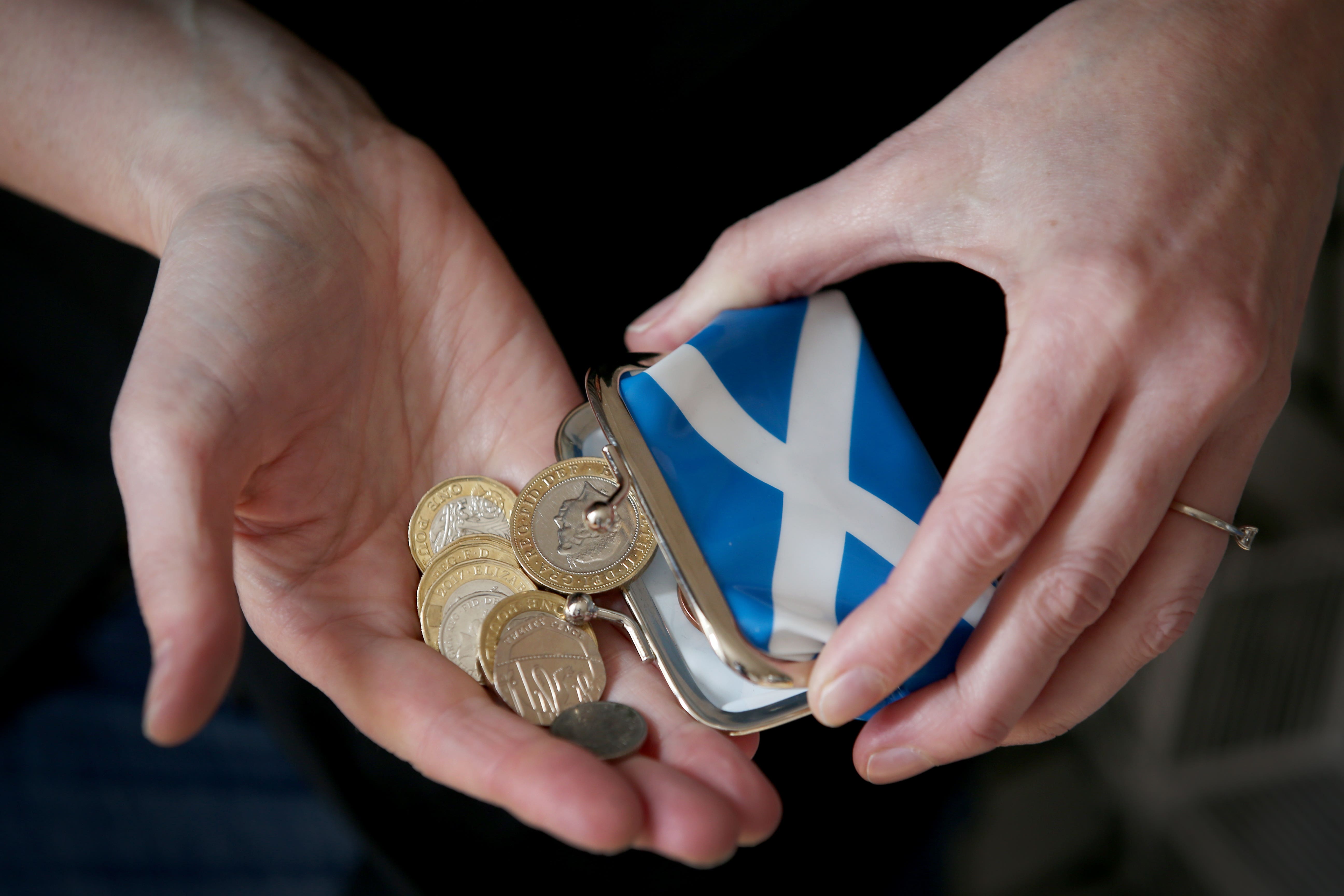High earners in Scotland to pay £3,000 more in tax than elsewhere in UK
A new tax band was created in the Scottish Budget, outlined at Holyrood on Tuesday.

Your support helps us to tell the story
From reproductive rights to climate change to Big Tech, The Independent is on the ground when the story is developing. Whether it's investigating the financials of Elon Musk's pro-Trump PAC or producing our latest documentary, 'The A Word', which shines a light on the American women fighting for reproductive rights, we know how important it is to parse out the facts from the messaging.
At such a critical moment in US history, we need reporters on the ground. Your donation allows us to keep sending journalists to speak to both sides of the story.
The Independent is trusted by Americans across the entire political spectrum. And unlike many other quality news outlets, we choose not to lock Americans out of our reporting and analysis with paywalls. We believe quality journalism should be available to everyone, paid for by those who can afford it.
Your support makes all the difference.The Scottish Government has increased taxes for the highest paid, with those earning more than £100,000 paying £3,000 more than those in the rest of the UK.
A new tax band has been created for next year, Deputy First Minister Shona Robison said, which will see those on a salary between £75,000 and £125,140 paying 45%.
She also announced a 1% increase to the highest rate of tax – for those earning more than £125,140 – to 48p in the pound.
The Scottish Fiscal Commission (SFC) says the increases will impact the top 5% of taxpayers in Scotland.
As well as the new band, the starter, basic, intermediate and higher bands will see their rates frozen at 19%, 20%, 21% and 42% respectively.
The rate at which the basic and intermediate bands kick in has also been increased by inflation.
Speaking in Holyrood on Tuesday, Ms Robison said those with the “broadest shoulders” should pay more.
“To be clear, by the broadest shoulders, I mean the top earning taxpayers,” she said.
“Overall, taking a different, progressive course on income tax in Scotland means that in 2024-25, we estimate that we will have around £1.5 billion of additional revenues compared to if we had followed the UK Government’s tax policies.
“Asking those with more, to pay more is the right choice, it’s a choice rooted in our values and is in stark contrast to the tax and service cuts of the Tory party.”
In 2024-25, the SFC estimates, income tax receipts will rise to around £18.8 billion from £17.3 billion the year before, and will spike further to £22.9 billion in 2028-29.
When compared to income taxpayers elsewhere in the UK, those earning £100,000 or more in Scotland will pay £3,346 more, and anyone who makes in excess of £28,850 will pay higher taxes than workers elsewhere in Britain.
But SFC chairman Professor Graeme Roy said the Scottish Government’s tax decisions will not alleviate the threats to public finances.
“Whilst resource funding will increase next year, and by more than we predicted in May, spending commitments including social security, public sector pay and the council tax freeze will mean individual Cabinet secretaries will face some difficult choices,” he said.
“The Scottish Government has introduced a new tax band in Scotland, further increasing the tax differential with the rest of the UK on high earners.
“This policy, along with the effects of fiscal drag, is forecast to boost income tax revenues in Scotland.”
With a £1.5 billion increase in revenue and a £174 million decrease in capital budget, the total pot has risen by £1.3 billion compared to 2023-24.